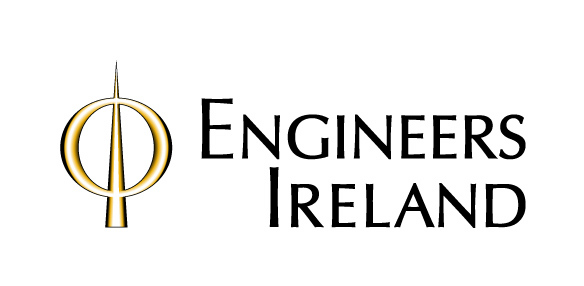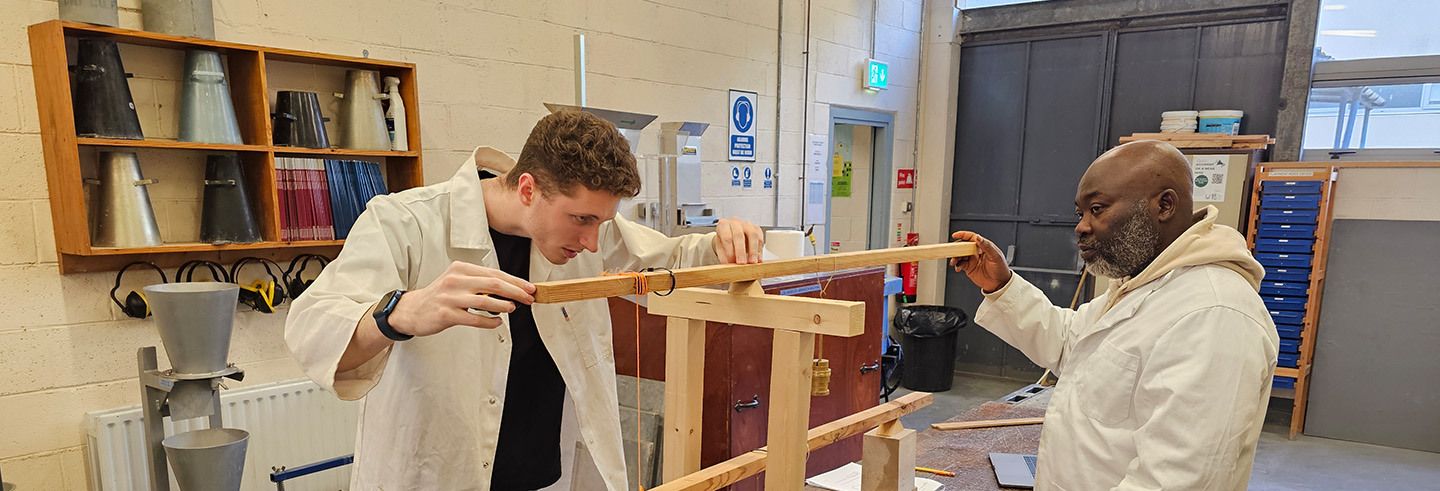
What is the Course about?
Civil Engineers and Civil Engineering Technicians design, construct and maintain the Built Environment on which our modern societies depend. Civil Engineering includes our Roads and Railways, the Supply of Safe Water, Sewage and Wastewater treatment, our Buildings and Bridges, our Airports and Electricity Generation. Ensuring that we protect our natural environment while maintaining this critical infrastructure is an increasingly important part of what Civil Engineers and Civil Engineering Technicians do.
Prominent examples of Civil Engineering Projects around the globe include the Brooklyn Bridge, the Hoover Dam, the Panama Canal, the Ardnacrusha Hydroelectric Scheme, the Channel Tunnel joining England and France, the towering Eiffel Tower in Paris and the London Underground System. In recent years in Ireland, significant projects have included the Dublin Port Tunnel, the creation of the Irish Motorway Network, The Luas light rail system in Dublin and the amazing Rose Fitzgerald Kennedy Bridge over the River Barrow.
Studying this course will give you the skills to work as a Civil Engineering Technician and play an important role in the Design, Construction and Maintenance of vital Civil Engineering projects. You will be able to work for Consultants, Contractors, Developers, Local Authorities and Utility Companies such as Irish Water and the ESB. The employment prospects for Civil Engineering Technicians are excellent with demand exceeding supply!
Find out more about the exciting world of Civil Engineering on our Facebook Page.
What do Civil Engineers Do?
Course Structure
Our Level 7 course is built around developing the core skills that you will need as a Civil Engineering Technician. You will learn the methods used in the Design and Construction of Roads, Buildings, Bridges, Water and Sewage Treatment. You will study the properties of the key materials used in civil engineering construction including concrete, different types of soils, stone aggregates, timber and steel. You will learn how to carry out a wide range of tests on these materials in our modern laboratories. High-quality plans, drawings and 3D models are critical in Civil Engineering projects. You will develop your skills in computer-aided design and drafting using Autocad, Revit and Civils 3D to create 2d and 3d drawings for Buildings, Bridges, Roads, Pipelines and Site Layouts. Carrying out land surveys and being able to accurately set out new construction are vital skills for a Civil Engineering Technician. You will learn these skills using our state-of-the-art equipment which includes Levels, Total Stations and GPS equipment.
We believe in Learning by Doing. Our course is built around a combination of lectures and practical work. You will develop your skills through practical work and both individual and team projects
YouTube Channel
Is this course for you?
Do you like hands-on involvement in practical projects? Do you like making things? Do you enjoy problem-solving? Are you interested in helping to create and maintain the Built Environment? Do you like working as part of a team? If you do - then this is the course for you! Check out the SETU Civil Engineering YouTube channel for detailed insights into our programme. Watch this YouTube video for an in-depth explanation of highway design principles.
Highway Design Principles
Special Features:
- You will learn key skills in Computer Aided Design & Drawing, Surveying, Civil Engineering Technology and Materials.
- We believe in Learning by Doing! You will develop your skills and knowledge through practical and project work.
- Our lecturers are all Chartered Engineers with many years of National and International Experience which ensures that our course has a strong practical emphasis that prepares you for the world of work.
- Excellent Career Prospects working for Consultants, Contractors, Developers, Local Authorities, and Utility Companies.
- Many students take the option to transfer to the final 2 years of the Level 8 Honours degree courses.
Accreditations
This programme is accredited by Engineers Ireland as meeting the requirements of a Level 7 course for the Associate Engineer title awarded by Engineers Ireland. This is the highest level of accreditation for a Level 7 degree programme from Engineers Ireland. It is a strong recognition of the calibre of this programme.

Year 1
| Semester 1 | Semester 2 |
|---|---|
| Engineering Drawing and Information Technology l (M) | Engineering Drawing and Information Technology ll (M) |
| Engineering Science l (M) | Mathematics ll (M) |
| Mathematics l (M) | Engineering Science ll (M) |
| Material Science (M) | Surveying and Setting Out l (M) |
| Civil Engineering Technology l (M) | Civil Engineering Technology ll (M) |
M is a mandatory subject - E is an elective subject
Year 2
| Semester 3 | Semester 4 |
|---|---|
| Civil Engineering Drawing (M) | Engineering Mathematics I (M) |
| Water Engineering (M) | Civil Engineering Drawing and BIM (M) |
| Mathematics and Statistics I (M) | Structural Design I (M) |
| Soil Mechanics (M) | Quantity Surveying and Estimating (M) |
| Structural Analysis I (M) | Concrete Technology (M) |
| Surveying and Setting Out II (M) |
M is a mandatory subject - E is an elective subject
Year 3
| Semester 5 | Semester 6 |
|---|---|
| Geotechnical Engineering I (M) | Earthworks Analysis (M) |
| Highway Engineering and Surveying (M) | Geotechnical Engineering II (M) |
| Civil Engineering Economics and Management (M) | BIM for Civil Engineers (M) |
| Mathematics and Statistics II (M) | Engineering Mathematics II (M) |
| Structures I (M) | Civil Engineering Project (M) |
| Structures II (M) |
M is a mandatory subject - E is an elective subject
What are the minimum entry requirements?
5 subjects: O6/H7
English or Irish: O6/H7
Mathematics: O6/H7
What follow-on study opportunities are available?
If you obtain a Merit 2 award outcome (above 50% average) and 70% in Advanced Mathematics II in Year 3 of the Bachelor of Engineering in Civil Engineering (NFQ Level 7), you may progress to Year 3 of the Bachelor of Engineering (Honours) in Civil Engineering course. You would then have the opportunity to complete a Level 8 honours degree over a five-year period. Many of the graduates from our Level 7 course have successfully chosen this route.
What exemptions will I receive?
-
Notes
-
What will I be able to do when I finish the course?
A civil engineering qualification travels well - allowing graduates to work anywhere in the world and across almost any industry sector. Graduates are qualified to:
- Work with contractors, consultants or local authorities on civil engineering design, construction and maintenance works
- Survey and set out road works using the latest surveying and GPS systems
- Participate in site investigations
- Supervise and carry out quality control on construction materials
- Draw and detail civil and structural works using CAD and/or BIM software
- Quantify and estimate costs for civil engineering works.
Explore these YouTube videos on Civil Engineering to gain a deeper understanding of the field.
Course Leader

Mr Brian Byrne
Department of Built Environment -
Call: +353599175403
Email: [email protected]
Profile







